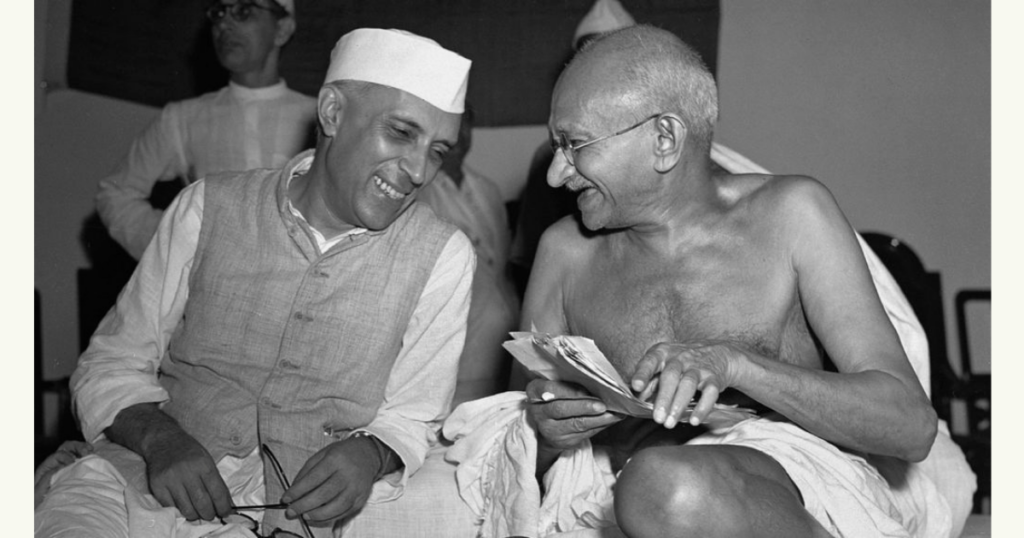Rajasthan govt removes post-independence textbooks for glorifying Nehru-Gandhi legacy. Congress slams move as political and historically misleading.
In a move that has stirred political debate, the Rajasthan government has decided to drop two supplementary school textbooks from the syllabus, citing concerns over their focus on glorifying the Nehru-Gandhi family. These books, titled Azadi ke Baad ka Swarnim Bharat Part-1 and Part-2, were introduced under the previous Congress-led government and covered India’s post-independence journey.
State Education Minister Madan Dilawar justified the removal by arguing that these books were not academically necessary since they didn’t contribute to students’ exam scores. According to him, they served merely as optional reading and offered no educational benefit worth retaining, especially given their alleged political slant. “They were not part of the main curriculum. They didn’t carry any marks. So we’ve decided there’s no point in continuing with them,” said Dilawar.
The minister also took issue with the books’ content, which he claimed praised Congress leaders excessively while overlooking other important historical figures. He stressed that education should present a balanced perspective, celebrating all those who have contributed to the nation’s progress. In particular, he criticized the exclusion or minimal mention of leaders like Lal Bahadur Shastri, Sardar Vallabhbhai Patel, Dr. B.R. Ambedkar, and Syama Prasad Mookerjee—figures who, he said, played key roles in shaping India but were largely sidelined in the texts.
“The books glorified only the Gandhi family and Congress leaders who, in some cases, imposed the Emergency and stifled democracy,” Dilawar remarked. He emphasized that historical narratives should not be skewed and that future generations deserve to learn about a broader range of national contributors, regardless of their political affiliations.
The textbooks included sections on the freedom movement and prominent national leaders such as Mahatma Gandhi, Jawaharlal Nehru, Indira Gandhi, and Rajiv Gandhi. The introduction of one book describes Nehru as the architect of modern India, praising his democratic vision and deep belief in parliamentary democracy. It states that Nehru saw democracy as a way of life and a continually evolving system, and that his ideals are reflected in the Indian Constitution’s preamble.
The books also touch on the achievements of the UPA governments led by Dr. Manmohan Singh, including the implementation of the Right to Education Act and the Right to Information Act. Although the latest edition from 2019 briefly mentions more recent initiatives such as Swachh Bharat Abhiyan, demonetisation, and the Goods and Services Tax (GST), Dilawar insisted that these inclusions were not enough to counterbalance the overall slant in favor of the Congress party.
One passage on demonetisation, for example, acknowledges Prime Minister Narendra Modi’s stated goals—such as fighting black money and terrorism—but also notes the public hardships caused by the sudden move, including long queues at banks.
The visual content of the books also drew criticism. They include photographs of Congress figures like Sonia Gandhi, Manmohan Singh, and Ashok Gehlot participating in Aadhaar card distribution drives. The covers feature images of Mahatma Gandhi and Jawaharlal Nehru on Part-1, and Indira Gandhi and Rajiv Gandhi on Part-2.
Given that these books carry no marks, the education minister said he has directed officials to withdraw them from use in schools. When asked about the cost already incurred in printing these books, Dilawar compared them to “poison” and said, “Just because poison has been purchased doesn’t mean we have to consume it.” He further stressed that the education system should focus on positive and balanced content, avoiding what he called politically biased material.
Taking his critique further, Dilawar took aim at former Prime Minister Indira Gandhi, accusing her of imposing the Emergency for political gain. He said that during her tenure, thousands were jailed and democratic values were stifled. “Congress leaders used slogans like ‘Indira is India, India is Indira’ while ignoring the contributions of countless other leaders,” he said.
The Congress party, meanwhile, has strongly opposed the decision. Former Rajasthan Chief Minister Ashok Gehlot called the move absurd and politically motivated. He argued that the Congress, having led the country for much of its post-independence history, has a legitimate place in educational materials. “It’s a fact that Congress governments helped the country reach historic milestones. The BJP can remove books but not erase history,” Gehlot said in a post on X (formerly Twitter).
He further pointed out that under Congress rule, India saw achievements like the Chandrayaan mission and the building of major infrastructure including factories, dams, and institutions. Gehlot emphasized the sacrifices of Indira Gandhi and Rajiv Gandhi, both of whom were assassinated while serving the nation. “Can the BJP government change those facts?” he asked rhetorically.
Instead of discarding the books completely, Gehlot suggested a more constructive approach: the government could have printed extra pages highlighting the BJP-led NDA’s contributions and attached them to the existing materials. “Why waste ₹2.5 crore of public funds by making the books obsolete?” he questioned.
Congress leader and former minister Pratap Singh Khachariyawas also criticized the decision, saying that while governments can change what is taught in schools, they cannot alter public memory or the legacy of national leaders. He noted that Nehru spent years in jail fighting for independence, Indira Gandhi led the nation during the 1971 war and helped in the creation of Bangladesh, and Rajiv Gandhi ushered in the IT revolution in India.
Rajasthan Congress president and former education minister Govind Singh Dotasra said the move was unnecessary and fueled by political motivations. “These books showcase the contributions of great Indians who helped shape a strong, progressive India. There was no need to politicize them,” Dotasra said, accusing Dilawar of manufacturing controversy where there was none.

Also Read: BAMS admissions 2025: NCISM drops 50% PCB mark requirement in Class 12, but NEET remains mandatory